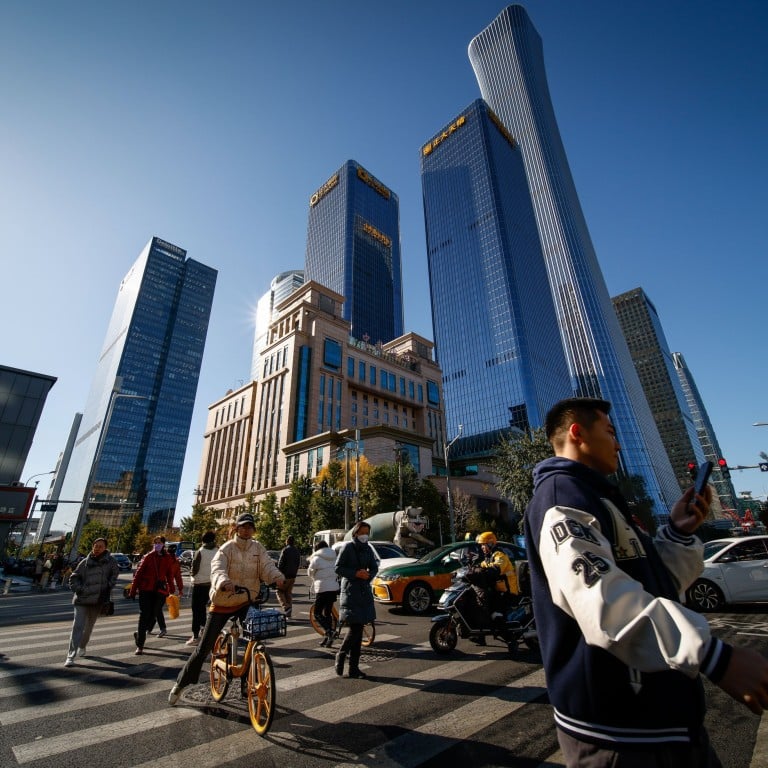
China’s capital city is opening up its services sector to overseas and private investors as the country struggles with foreign capital flight, a sluggish post-pandemic economic recovery and a slowing global economy.
The plan endorsed by the State Council, China’s cabinet, aims to deepen reforms in Beijing’s telecommunications, finance, healthcare, culture and professional finance services, with overseas investors given greater access to many industries.
The move comes three years after the city was chosen to host a pilot zone on opening up the services sector.
Beijing was selected because of its “strategic positioning as the capital city”, the council said in a statement published on its website on Thursday.
The new opening-up policy involves around 170 measures, and its key task would be to “align with international high-standard economic and trade rules,” China’s commerce vice-minister Ling Ji said.
The measures include lifting the cap on foreign investment for certain value-added telecoms services, such as internet access providers. New national internet exchange centres and further opening up value-added telecoms services might be considered at “an appropriate time”, the council said.
In the healthcare and medical sector, “qualified doctors” from foreign countries, as well as Hong Kong, Macau and Taiwan will be allowed to set up clinics in Beijing. International cooperation in stem cell and gene technology research and development will also be encouraged.
As for financial services, the council said market-based cooperation between venture capital, equity investment institutions and financial institutions will be encouraged.
Promotion of the digital economy will include expanding the Beijing data exchange and introducing regulations for smoother data trade.
Foreign investment approvals will be streamlined, with incentives for settlement in foreign currencies and cross-border capital flows.
Mainland companies will receive official support to import more “quality” foreign audiovisual products, while foreign investors wishing to set up entertainment venues will only require approval from the district authorities concerned.
“Qualified overseas individuals” will also be allowed to provide consultation on securities and trade investment.
The new policy comes as China grapples with continued outflow of foreign capital, and a less than stellar post-pandemic recovery.
Earlier this month, China reported its first-ever quarterly deficit in foreign direct investment (FDI) since records began in 1998.
Exports also continue to drop as trading partners in the West call for a “de-risking” of supply chains over a perceived over-reliance on China.
Exports fell by 6.4 per cent year on year in October, an even sharper decline than the 6.2 per cent posted in September.
The ruling Communist Party is widely expected to hold two critical meetings in December that might reset the national economic policy and development agenda.
News Related